
Hispanic Contributions to Psychology
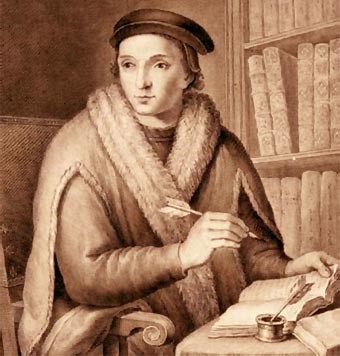
Juan Luis Vives
Born: 1493 in Valencia, Spain
Died: 1540 in Habsburg, Netherlands
Education and Work:
- In 1507 he began his university studies in the University of Valencia.
- In 1509 due to the persecution of non-Christians in Spain his father sends him to study at Sorbonne University in Paris during the fall season.
- In 1512 he received his PhD in Philosophy and art.
- In 1522 he was offered a teaching post at University of Alcala (in Spain), but he rejected it and went to Oxford to teach Humanities and Jurisprudence.
Contributions and Accomplishments:
- One of the most prominent figures advocating humanistic learning in the 16th century.
- Has been called the “father” of modern Psychology given that his ideas precede Bacon, Descartes, and Wundt.
- His book De anima et vita has been cited numerous times and was one of the first to make the connection between body and mind.
- Some of Descartes’s writings are heavily influenced by Vives’s work.
- One of the earliest advocates for the study of learning and memory.
- One of the first people to see the study of Psychology as a useful tool for all disciplines.
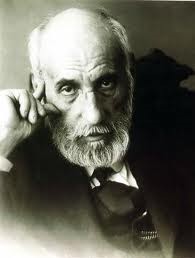
Santiago Ramon y Cajal
Born: May 1, 1852 in Navarre, Spain
Died: October 18, 1934 in Madrid, Spain
Education and Work:
- In early life Ramon y Cajal had disciplinary problems which led to him having to change schools often.
- He was an apprentice to a barber and then to a cobbler, but his wish was to be an artist.
- His father was an Anatomy professor at the University of Saragossa (Spain), and he pushed Ramon y Cajal to study medicine.
- He became a medical officer for the Spanish Army.
- In 1877 he received his doctorate degree in medicine at Madrid and started teaching at the University of Valencia
- In 1880 he began to publish in scientific works. During his career he published well over 100 articles in Spanish, French, English and German focusing mostly on the fine structure of the nervous system.
- In 1887 appointed professor of Histology and Pathological Anatomy at Barcelona
- In 1900 he was appointed Director of the National Institute of Hygiene and of the Institute of Biological Research in Madrid.
- In 1906 he received the Nobel Prize for Physiology and Medicine; he decided to share it with Camillo Golgi claiming that without Golgi’s findings, his own would have been impossible.
Contributions and Accomplishments:
- His most noted works were on the structure of the central nervous system.
- He established the Neuron Doctrine which states that:
- Neural cells are not a web but rather that neurons are discrete and autonomous cells that communicate with one another through special junctions
- The junctions through which neurons communicate are called synapses
- Information is transferred in one direction (from dendrites to axon).
- His findings have paved the way to give rise to many fields in psychology like clinical, neurobiological, and comparative.
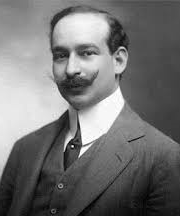
Jose Ingenieros
Born: April 24, 1877 in Sicily, Italy
Died: October 31, 1925 in Buenos Aires, Argentina
Education and Work:
- In 1900 he graduates from medical school.
- In 1904 he is appointed professor of Psychology and awarded the National Academy of Medicine Gold Medal.
- In 1908 he forms a Psychological Society in Argentina and begins teaching Experimental Psychology.
- In 1911 he publishes on Genetic Psychology and self-exiles to Europe.
- In 1913, after visiting several European Universities, he publishes Principles of Biological Psychology and his most famous work named The Mediocre Man.
Contributions and Accomplishments:
- In 1910 he published one of the earliest recorded works in Biological Psychology.
- He was the first Psychologist to try to establish a comprehensive psychological system in South America.
- He was a prolific writer; his works include over 450 articles and 47 books.
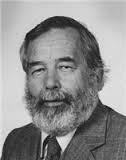
John Garcia
Born: June 12, 1917 in Santa Rosa, California
Died: October 12, 2012
Education and Work:
- He was born a farm worker to Spanish immigrants.
- By age 20 he worked as a mechanic and a few years later he became a ship fitter.
- During World War II he enlisted in the US Army Air Corps where he became a pilot.
- After finalizing his work with the Army Air Corps, he used his G.I. Bill money to pay for college.
- He received his Bachelor’s degree from Santa Rosa Jr. College
- In 1965 received his Master’s degree and his PhD from UC Berkeley
- While at UC Berkeley, he conducts research on radiation and brain research, and finds that rats could detect and avoid low doses of radiation.
- In 1978 he was awarded the Howard Crosby Warren Medal for psychological research.
Contributions and Accomplishments:
- After the mass deaths of sheep living downwind from nuclear test sites, he and his lab find the cause to be radiation poisoning. He accompanies JFK and MLK to Vienna to meet with the Russians, and he testifies against nuclear testing.
- His research with rats also lead him to one of his most notable contributions: The Garcia Effect (a conditioned taste aversion effect named after him)
- This effect has been widely studied and has been used to train wild wolves and coyotes not to prey on livestock.
- His taste aversion research changed the way of thinking about associative learning. Instead of all senses being equal, he showed that taste is highly associative for animals due to its connection to surviving possible poisoning and he also changed the association parameters of time from seconds to hours.
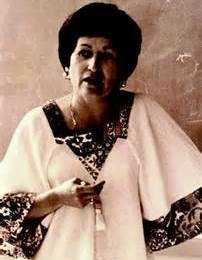
Martha Bernal
Born: April 13, 1931 in San Antonio, Texas
Died: September 28, 2001 in Black Canyon City, Arizona
Education and Work:
- In 1962 she earned her PhD in clinical psychology from the University of Indiana
- Following her postgraduate studies, she received many letters of rejection from jobs that would not hire women.
- Her inability to secure a working position after completing her PhD propelled her to pursue a U.S. Public Health Service Fellowship.
- With the Fellowship she finalized her research on human psychophysiology at the Health Sciences Center of University of California at Los Angeles.
- In 1966 she received a grant from the National Institute of Mental Health to build a laboratory and study classical conditioning and orienting responses in children with autism.
- In the 70s she applied her efforts to ensure that minority students could receive graduate training and devoted much of her time to increasing the recruitment, retention and training of these students.
- In 1986 she became a professor at Arizona State University where her focus continued to be students and workers of color.
Contributions and Accomplishments:
- She was the first woman of Mexican descent to obtain her PhD in clinical psychology in the United States.
- She was a pioneer in implementing the rigorous theories of learning and its methods to assessing and treating children with behavior problems.
- Her efforts contributed greatly to the increasing use of experimentally validated treatment techniques for children.
- She was one of the most effective early advocates for a multicultural psychology.
- In 1979 she was one of the establishers of the National Hispanic Psychological Association and later became the president of the organization.
- In that same year she received a National Research Service Award to study how APA-accredited clinical psychology programs prepared for treating multicultural populations. She found that the curricula were inadequate.
- In 2000 she was recognized for her contributions at the Latino Psychology Conference.
- In 2001 she was awarded the Contributions to Psychology Award by the Public Interest Directorate

Melba Vasquez
Born: 1951 in San Marcos, Texas
Died: Still living
Education and Work:
- She received her Bachelor’s degree in English and Political Science along with a certification to teach from Southwest Texas State University.
- While working on her Master’s in school counseling, she taught English and Political Science in a middle school in Texas.
- In 1978, she completed her doctoral studies in counseling psychology at the University of Texas in Austin.
- After graduating, she became one of the psychologists at UT Austin’s counseling center.
- At the same institution, she directed the internship training program.
- She taught in the counseling psychology doctoral program at Colorado State University.
- Over a decade after, she decided to hold her own private practice while still maintaining an active role in her previous endeavors
Contributions and Accomplishments:
- She was one of the first recipients of the APA’s minority fellowship.
- She served as president of the Texas Psychological Association, the 17th and 35th Divisions of the APA.
- She co-founded the APA Division 45 (the society for the psychological study of ethnic minorities)
- In 2011 she was elected as president of the APA, making her the first Latina APA president.
- She currently serves on the APA board of Directors.
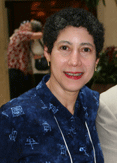
Lillian Comas-Diaz
Born: Chicago, Illinois
Died: Still living
Education and Work:
- At age six, Diaz and her family moved to Puerto Rico. Here she attended primary and secondary school.
- In 1970 she received a Bachelor’s of Arts degree from the University of Puerto Rico.
- In 1973 she received her Master’s degree in Clinical Psychology also from the University of Puerto Rico.
- In 1979 she completed her Doctorate degree at the University of Massachusetts also in Clinical Psychology.
- Upon receiving her PhD in 1979 she started work at Yale University’s Psychiatry department.
- At Yale, she became the director of the Hispanic Clinic.
- In 1986 she became a Clinical professor at George Washington University Department of Psychiatry and Behavioral Sciences.
- Currently she holds her own private practice and continues to teach at George Washington University.
Contributions and Accomplishments:
- In the 1970s, she developed a mental health center for the Latin community in Connecticut.
- She co-founded the Transcultural Mental Health Institute.
- With her training as a clinician and her activist characteristics, she has played a key part in investigations of human rights abuse in South Africa, South America, and the Soviet Union.
- She is a pioneer in incorporating culturally competent components to mental health care.
- She is the founding editor of Psychological Association Division 45’s official journal.
- Her work on the interactions between culture, gender, ethnicity, and race in mental health has gained her notoriety.
- She has been named a fellow in APA divisions 12, 29, 35, 42, 45 and 46.
- She has been given the honor of APA’s Distinguished Contribution to Psychology in the public interest, the award from Association for Women in Psychology Distinguished Publication, and the American Foundation Rosalee G. Weiss Award for Contributions to Professional Psychology.
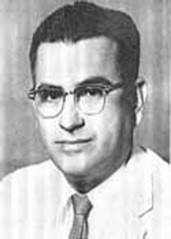
Efrain Sanchez Hidalgo
Born: April 29, 1918 in Moca, Puerto Rico
Died: 1974
Education and Work:
- He attended Moca elementary school and Aguadilla secondary school in the island of Puerto Rico.
- He attended the University of Puerto Rico where he received a Bachelor’s degree specializing on education in 1939.
- Upon graduation he decided to move to New York and enrolled at Columbia University. In 1940 he received a Master’s degree in Educational Psychology from this institution.
- That same year he was hired as a docent in the College of Pedagogy of University of Puerto Rico.
- After a year of working as a professor he was drafted to serve in the war by the United States Army. He served as the Director his regiment’s program of education and orientation until 1946.
- After the war, he was hired by the Veterans Affairs Rehab Center in San Juan, Puerto Rico as an official and Director of training.
- He returned to Columbia University and obtained his PhD in Social Psychology in 1951.
- His thesis titled “A Study of the Symbiotic Relationships Between friends” was considered to be one of the best studies on friendship. His most prominent mentor on this topic was Edward L. Thorndike.
- In 1953 he was hired at the University of Puerto Rico with full professorship.
Contributions and Accomplishments:
- He was the first Puerto Rican to receive a PhD in Psychology in the United States.
- Founded the scholarly magazine named Pedagogía.
- In 1971 He was honored with the Outstanding Educators of America Award.
- He has more tan 150 publication.
- He wrote several acclaimed books including Psicologia Educativa (Educational Psychology) which has been edited and republished seven times and is used as the standard textbook in nearly all Latin American countries, the Philipines, and Spain
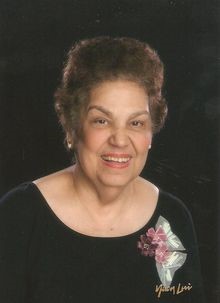
Ena Vazquez-Nuttall
Born: 1937 in Salinas, Puerto Rico
Died: October 20, 2011 in Newton, Washington
Education and Work:
- Received Bachelor’s degree from University of Puerto Rico.
- Received Master’s degree from Radcliffe College.
- Received EdD in counseling and school psychology from Boston University.
- Directed the school Psychology program at Northeastern University.
- For 10 years she held the Dean position for graduate studies at the Bouve College of Health Sciences.
- She also worked as the assistant dean of multicultural education and as a professor.
Contributions and Accomplishments:
- She founded the first doctoral program at Massachusetts-Amherst and the second at Northeastern University in Boston.
- She advocated for and promoted the importance of cultural diversity before it was considered a significant issue.
- Her writings, especially “Multicultural Counseling Competencies: Individual Organizational Development”, have had a major impact on APA policies and practices today.
- She was a fellow of APA’s Division 16, served on many committees, and chaired the Training and Education Group of the Commission on Ethnic Minority Recruitment, Retention and Training in Psychology.
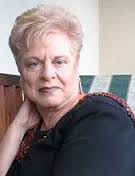
Oliva Espin
Born: December 12, 1938 in Cuba
Died: Still Living
Education and Work:
- Her elementary education took place at a school her father founded after leaving the Navy. Here she learned to read and write and at age 7 her uncle helped her publish her poems.
- In 1969 she received a Bachelor’s of Art degree from the University of Costa Rica.
- From 1964 to 1970 she worked as an instructor of Psychology in Costa Rica.
- She returned to the United States and continued her studies. In 1974 she earned a PhD from the University of Florida.
- With dotorate degree in hand, she moved to Montreal, Canada where she served as Interim Assistant professor at McGill University’s Department of Counselor Education until 1975.
- In 1975 she was hired at Boston University as Associate Clinical Professor in the Counseling Psychology Department. Here she remained for eleven years.
- From 1981 to 1983 she did post-doctoral work at Harvard University with a fellowship from the National Institute of Mental Health
- Seeking a more suitable city to live in, she moved to San Diego where she found her fit. In 1990 she became a professor at San Diego State University in the Department of Women’s Studies.
- During that time, she was also working as a professor at the California School of Professional Psychology and serving as Special Assistant to the Chancellor for Diversity Issues.
- In 2002 she became Professor Emerita at San Diego State University and in 2007 she retired.
Contributions and Accomplishments:
- Her main contributions focus on the importance gaining a knowledge base in areas such as:
- Psychology of immigrant and refugee women
- Latina/o psychology
- Women and sexuality across cultures
- Qualitative research methodology
- In 1991 the APA recognized her with the Distinguished Professional Contribution to Public Service award.
- In 1994 she was named a Fellow by the British Psychological Society.
- In 2004 the National Latino/a Psychological Association presented her with the Distinguished Psychologist Award for life-long work on the Psychology of Latinas.
- In 2005 the APA recognized her as an Elder for life-long work on Multicultural Issues in Psychology.
- In 2006 the 52nd division of APA recognized her with the Denmark-Reuder Award for Outstanding International Contributions to the Psychology of Women and Gender.
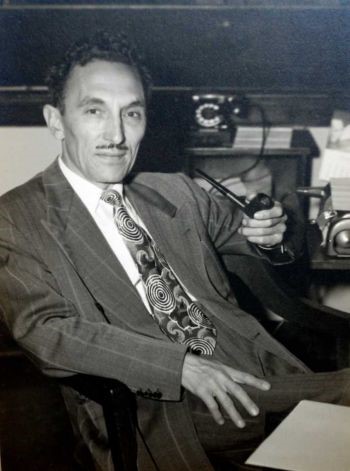
George I. Sanchez
Born: October 4, 1906 in Albuquerque, New Mexico
Died: April 5, 1972 in Texas
Education and Work:
- He attended local public schools throughout his elementary and high school years near the Jerome, Arizona area. (Jerome is now a vacant area, but it in his time it was a mining town where humanity was oppressed constantly)
- While studying weekends and summers to earn his B.A. from University of New Mexico, task that took him 8 years, he worked at rural schools as a teacher, principal, and superintendent.
- In 1930 he earns his Bachelor’s Degree from University of New Mexico.
- Upon graduation, he received a fellowship from the General Education Board (GEB) that paid for his graduate studies and allowed him to continue studying.
- In 1931 he earned his Master of Science degree in Education with a specialization in Educational Psychology and Spanish from the University of Texas at Austin.
- In 1934 he earned his Doctorate in Education degree from the University of California at Berkeley.
- From 1931 to 1935, by way of the GEB, he worked as the director of the Division of Information and Statistics of the New Mexico State Department of Education.
- In 1935 he was asked to conduct field studies for the Julius Rosenwald Fund concerning rural and African American education in the south and Mexico.
- In 1937 he was invited to become the director of the National Pedagogical Institute of the Venezuelan Ministry of Education.
- After an uphill battle against unfair treatment of minority children in the education system of New Mexico, his once promised tenured position at the University of New Mexico was denied.
- In 1940 he received a tenured, full-professorship at University of Texas where he became the first professor of Latin American Studies and later served as chair of the History and Philosophy of Education Department.
- He worked at University of Texas until his death in 1972.
Contribution and Accomplishments:
- His contributions extended far beyond the fields of Psychology and Education. He was one of the first to challenge biased research on Intelligence.
- He was also one of the first to question the legitimacy of and speak out against the use of I.Q. tests.
- He has been attributed with the foundation of Chicano Psychology.
- In 1941 he became the national president of the League of United Latin American Citizens (LULAC). During this time, he was an incessant activist for the equality of minorities, especially minority children in public education.
- In 1984 the University of California at Berkeley recognized him retrospectively for being the leader in laws affecting Latino children and other minorities.